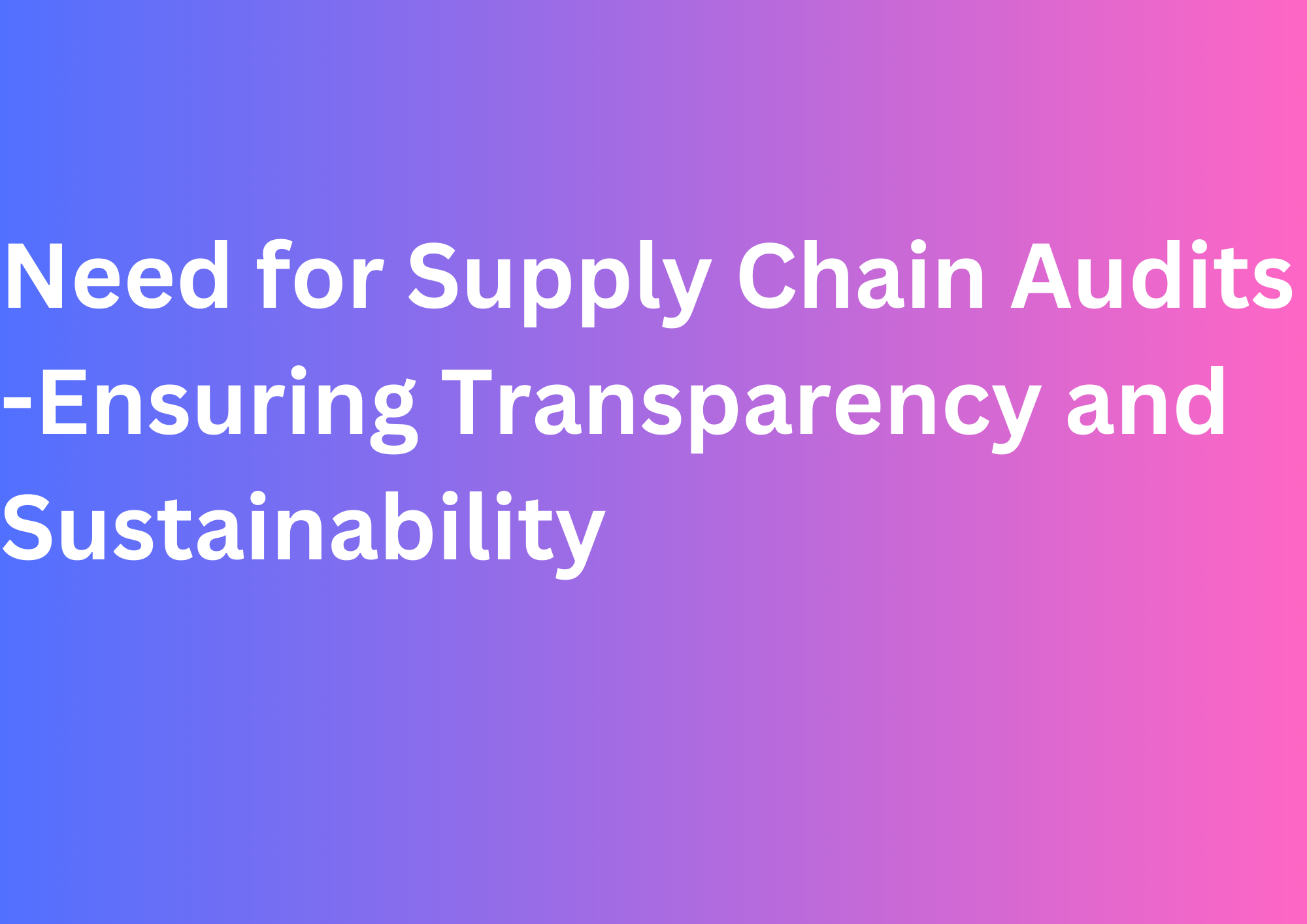Introduction
In today’s interconnected global economy, supply chains have become increasingly complex, involving numerous stakeholders, countries, and regulatory environments. While supply chains play a vital role in meeting consumer demands, they are also susceptible to various risks, including human rights violations, environmental degradation, and unethical practices. To address these challenges, the need for comprehensive supply chain audits has become more critical than ever before. This article explores the importance of supply chain audits in ensuring transparency, sustainability, and ethical practices across industries.
Enhancing Transparency
Supply chain audits provide a systematic and rigorous evaluation of the processes, practices, and stakeholders involved in the production and distribution of goods and services. By conducting audits, organizations gain a deeper understanding of their supply chains, uncovering potential vulnerabilities, and identifying areas for improvement. Audits allow companies to trace their supply chains back to their origins, ensuring transparency and visibility into every stage of production.
Transparency plays a pivotal role in addressing issues such as child labor, modern slavery, and unsafe working conditions. Supply chain audits enable companies to identify any instances of non-compliance with labor laws, human rights violations, or unethical practices. Armed with this knowledge, organizations can take corrective action, hold suppliers accountable, and mitigate reputational risks associated with unethical practices.
Ensuring Sustainability
Sustainability has become a key concern for both consumers and businesses. Supply chain audits serve as a crucial tool for assessing and enhancing the environmental impact of operations. Audits enable organizations to evaluate suppliers’ adherence to sustainable practices, such as responsible sourcing, waste management, and energy efficiency. By promoting sustainability throughout the supply chain, audits help reduce carbon emissions, minimize resource consumption, and protect ecosystems.
Supply chain audits also facilitate the identification of potential risks related to environmental regulations, hazardous substances, and waste disposal. By proactively addressing these risks, organizations can avoid costly legal penalties, reputational damage, and adverse environmental impacts. Furthermore, audits enable companies to collaborate with suppliers to develop sustainable solutions and drive positive change throughout the supply chain.
Mitigating Business Risks
In addition to ethical and environmental concerns, supply chain audits help mitigate various business risks. These audits evaluate suppliers’ financial stability, operational capabilities, and compliance with regulatory requirements. By assessing the financial health of suppliers, companies can identify potential risks, such as bankruptcy or insolvency, which could disrupt the supply chain.
Audits also enable organizations to evaluate suppliers’ quality management systems and ensure product conformity. By identifying potential quality issues, companies can prevent product recalls, customer dissatisfaction, and financial losses. Supply chain audits provide insights into supplier performance, enabling organizations to foster a culture of continuous improvement and drive operational excellence.
Conclusion
Supply chain audits are a fundamental tool for ensuring transparency, sustainability, and ethical practices within global supply chains. By conducting comprehensive audits, organizations can gain visibility into their supply chains, identify potential risks, and implement corrective actions. Audits promote transparency by uncovering ethical violations and labour abuses, enabling companies to take appropriate measures and safeguard their reputation.
Moreover, supply chain audits play a vital role in driving sustainability efforts. By evaluating suppliers’ environmental practices, organizations can reduce their carbon footprint, minimize waste, and protect natural resources. Audits also help mitigate business risks by assessing suppliers’ financial stability, quality management systems, and regulatory compliance.
As consumers increasingly demand transparency, sustainability, and ethical practices, organizations that prioritize supply chain audits position themselves as responsible leaders in their industries. By embracing audits, companies can forge stronger relationships with suppliers, mitigate risks, and create resilient and socially responsible supply chains.

(This article is written by Ajith Kumar.C , Audit Executive at R V K S And Associates)
